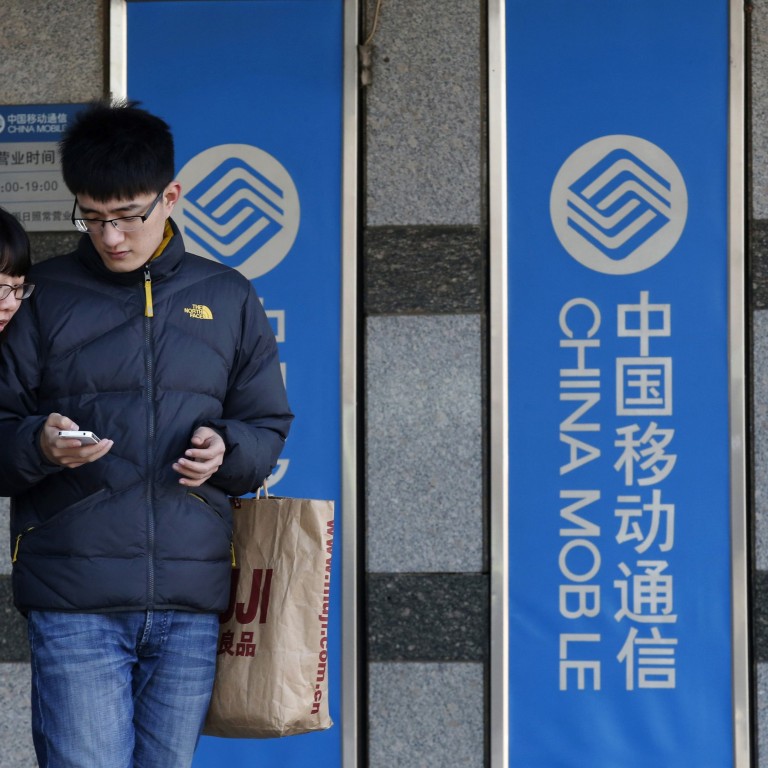
China Mobile dispute points to regulatory confusion, lawyers say
Lawyers say the control of subsidiaries of state-owned firms and power given to their overseas units causing regulatory confusion
The regulatory ambiguities that arise when subsidiaries of state-owned enterprises make deals, especially less strictly supervised overseas ones, have been highlighted by the dispute that has embroiled China Mobile.

"Sasac sometimes grants the power of approving a deal that takes place overseas to the enterprise itself, especially when the party involved is a subsidiary, or subsidiary of a subsidiary," said Zheng Zhigang, a lawyer at Dacheng Law Offices in Beijing.
When the shareholding structure of an "important subsidiary" of a state-controlled enterprise is changed overseas - to controlling ownership from single ownership, or to minority ownership from controlling ownership - the deal must to be reported to Sasac, Zheng said.
A source close to Sasac said the key to the dispute was to find out whether China Mobile Hong Kong Corp (CMHKC), the unit sold by Hong Kong-listed China Mobile, was defined as an "important unit".
An important unit is classified as having assets and profits equivalent to more than 60 per cent of those of the parent firm.
CMHKC made net losses of HK$17.8 million in 2012 and HK$3.6 million in 2011, according to HKTV's filing to the stock exchange.
CMHKC held the spectrum on which it could provide mobile television services, for which it paid HK$175 million in 2010, although it never launched television services or made any further investment in the business.
Hannah Li, a senior analyst at Sun Hung Kai Financial, said that under the regulatory regime, Sasac would also look into a deal if it thought a state-owned asset had been undervalued.
"When China Mobile made the statement, it didn't elaborate on which rules might have been violated," Li said, adding that the purchase and selling prices had been close and she did not think CMHKC had been undervalued.
Ma Yunxiu, from Guangdong Decheng Law Firm, said a subsidiary was an independent entity and was entitled to full rights to handle its business. If a state asset was involved, approval in advance was needed. "The regulation is clear," Ma said. "Sasac does sometimes devolve the power to enterprises but … there must be a formal document. It can't be an oral agreement."
Yang Chunbao, a senior partner at Haworth & Lexon in Shanghai, said the situation became fuzzy when subsidiaries of state-owned firms were involved.
"For CMCC, its direct management department is Sasac, which is crystal clear," Yang said. "But it's not very clear which level's Sasac office is responsible for the subsidiaries."
He said the investigation would have no impact on the buyer, but someone in the Hong Kong subsidiary might be demoted if deemed responsible.
Market observers said they were not worried the case would dissuade Hong Kong businesses from making deals with the branches of state-owned firms. Sun Hung Kai Financial executive director Joseph Tong said he believed it was an isolated incident and would have no impact on future transactions.
"In this case, the agreement is bound by Hong Kong laws and any investigation conducted by its shareholder is more an internal matter," Tong said.
Hong Kong Institute of Directors chairman Kelvin Wong said it would not cast a shadow over the future transactions of listed state-owned firms in Hong Kong.
